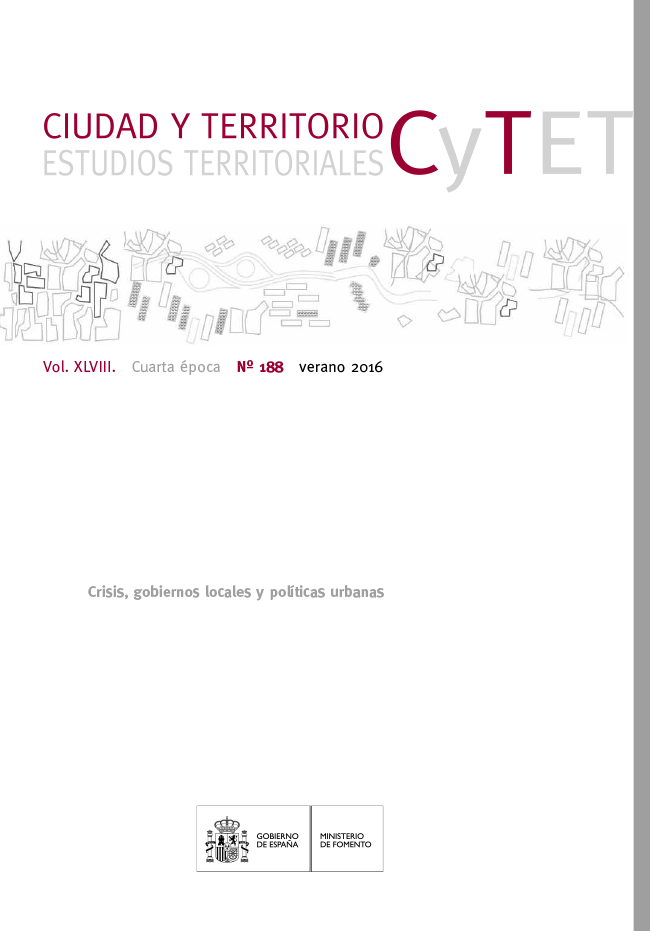Right to Housing and Economic Crisis: Housing as a Problema in the Current Economic Crisis
Keywords:
Housing, public policies, crisis, accumulation by dispossession, transnational investment fundsAbstract
Housing is a complex, multi-layered problem that requires both historical, social, economic
and financial approaches, together with legal aspects and its strong political dimension, to be
successfully understood. This article will contribute to such comprehension with a study of housing
and macroeconomic policies in its different aspects, for the Spanish and European cases, that
points out the main contradictions and lacks of previous decades. After that, taking into account the
impacts of the economic crisis and the conformation of the social problem of housing, we examine
how housing went from being object of accumulation to become the trigger of wide processes of
dispossession. Finally, we focus on current policies, dedicated to promote a new wave of
liberalisation and financialization of housing, and conclude with a reflection about the role of
housing in contemporary Spanish society.
Downloads
Downloads
Published
How to Cite
Issue
Section
License
Copyright (c) 2016 Eva García Pérez, Michael Janoschka

This work is licensed under a Creative Commons Attribution-NonCommercial-NoDerivatives 4.0 International License.
Considering the provisions of the current legislation on Intellectual Property, and in accordance with them, all authors publishing in CyTET give -in a non-exclusive way and without time limit- to the Ministry of Transport, Mobility and Urban Agenda the rights to disseminate, reproduce, communicate and distribute in any current or future format, on paper or electronic, the original or derived version of their work under a Creative Commons Attribution-NonCommercial-NoDerivative 4.0 license International (CC BY-NC-ND 4.0), as well as to include or assign to third parties the inclusion of its content in national and international indexes, repositories and databases, with reference and recognition in any case of its authorship.
In addition, when sending the work, the author(s) declares that it is an original work in which the sources that have been used are recognized, committing to respect the scientific evidence, to no longer modify the original data and to verify or refute its hypothesis. Author(s) also declare that the essential content of the work has not been previously published nor will it be published in any other publication while it is under evaluation by CyTET; and that it has not been simultaneously sent to another journal.
Authors must sign a Transfer of Rights Form, which will be sent to them from the CyTET Secretariat once the article is accepted for publication.
With the aim of promoting the dissemination of knowledge, CyTET joins the Open Journal Access (OA) movement and delivers all of its content to various national and international indexes, repositories and databases under this protocol; therefore, the submission of a work to be published in the journal presupposes the explicit acceptance by the author of this distribution method.
Authors are encouraged to reproduce and host their work published in CyTET in institutional repositories, web pages, etc. with the intention of contributing to the improvement of the transfer of knowledge and the citation of said works.








 Enlace a CyTET en Linkedin
Enlace a CyTET en Linkedin